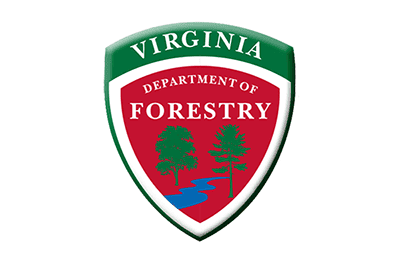Virginia prepared for fall fire season
 CHARLOTTESVILLE, VA – Virginia’s fall fire season officially begins Oct. 15. The Virginia Department of Forestry (DOF) is implementing several proactive measures to prepare for the fall wildfire season. Wildland firefighters are assigned to every county across Virginia to work with local fire departments throughout the season.
CHARLOTTESVILLE, VA – Virginia’s fall fire season officially begins Oct. 15. The Virginia Department of Forestry (DOF) is implementing several proactive measures to prepare for the fall wildfire season. Wildland firefighters are assigned to every county across Virginia to work with local fire departments throughout the season.
Recent record-breaking fire seasons resulted in 156 fires burning nearly 25,000 acres in the fall, and 411 fires burning 20,000 acres last spring. The last time Virginia experienced such damaging fire seasons was over 30 years ago. From now until Nov. 30, DOF asks that you to take extra caution when engaging in activities that involve fire, such as burning yard debris, having campfires or using backyard fire pits.
“DOF has spent the summer ensuring our crews are fully prepared, and the resources and people we require are ready and in place,” said State Forester Rob Farrell. “This includes making necessary repairs of emergency response equipment, and resupplying inventories to ensure extended periods of emergency operations can be sustained if needed.”
While Hurricane Helene provided ample moisture to reduce the longer-term drought threat in the western half of the Commonwealth, longer-term drought concerns persist in the eastern areas of the state as well as the northern portions of the Shenandoah Valley. Overall, the general outlook for Virginia’s fall wildfire season is for normal wildfire activity, however, the last two fire seasons have been extremely active. Virginia’s 10-year average for wildfire occurrence is 600 wildfires burning 9,000 acres.
“It may surprise some to learn that the majority of wildfires are caused by people, with escaped burning debris being the biggest offender,” said DOF Chief of Fire and Emergency Response John Miller. “Because these fires are accidental, this means they are also preventable. Remember that the Commonwealth’s 4 p.m. burn law is only in effect during the spring, but everyone needs to check in with local officials in your area for local fire restrictions or burning bans, especially during fire season. These often change with no advanced warning based on fast-changing conditions.”
Additional DOF preparedness activities include:
- Coordinate helicopter and crew personnel availability of the Virginia National Guard to assist with wildfire related missions into November
- Initiate seasonal contract for single-engine planes and pilots to assist with wildfire detection and suppression, as well as to supply aerial reconnaissance of ongoing wildfire control efforts
- Determine availability of federal suppression resources, along with plans to pre-stage resources
- Work with Virginia Department of Corrections to complete fall training of inmate crews to ensure preparedness
- Develop an initial plan to support the possible deployment of a Fire Prevention Team to be located centrally or in critical area
- Coordinate with Virginia Department of Fire Programs and Virginia Department of Emergency Management operational and EOC personnel to ensure statewide awareness to support significant incidents
- Increase availability of DOF personnel from agency headquarters to support incident operations during significant events
- Increase recruitment of part-time firefighters and establish seasonal crews to ensure availability of firefighters when needed
Use Extra Care with Outdoor Burning
The leading cause of wildfires in Virginia is carelessness associated with outdoor burning. An unattended fire or a discarded cigarette can quickly spread into the dry “fuels” (dead leaves and other debris) that are so prevalent each fall. It only takes a few days of dry, windy conditions combined with fallen leaves for an escaped fire to turn into a significant wildfire.
Nine out of 10 wildfires are initiated by people, with escaped debris being the leading cause. While these fires are largely accidental, there are ways they can be prevented.
Refer to these tips to prevent the spread of and reduce the number of wildfires each year:
- Avoid having a fire on dry, windy days
- Keep burn piles small and in flat areas, far from flammable vegetation
- Keep a rake/shovel and a water source nearby (e.g. hose, bucket of water)
- Have your phone ready to call 911 in case of emergency
- Stay with your fire until it is completely out (drown, stir, ensure it’s cool, repeat as necessary)
- Completely soak cigarettes before disposing them in a trash can
Visit DOF’s website to learn more about fall fire season and how you can protect yourself, your community and our forests.
